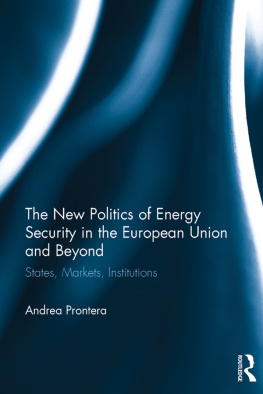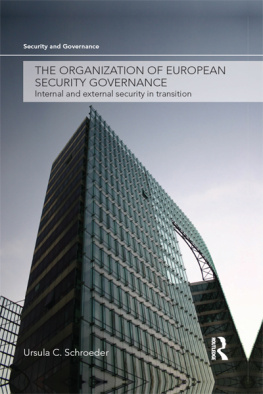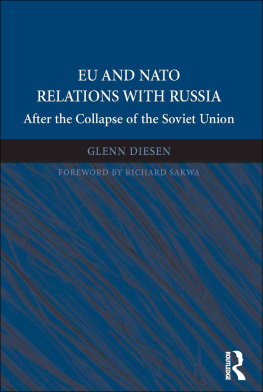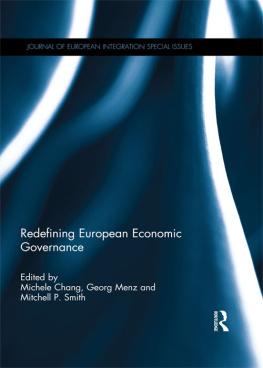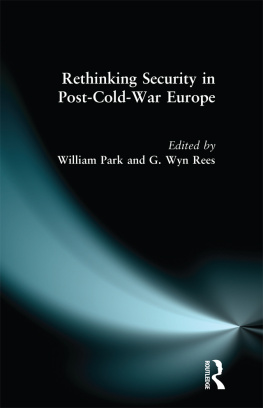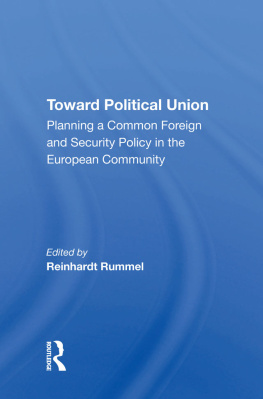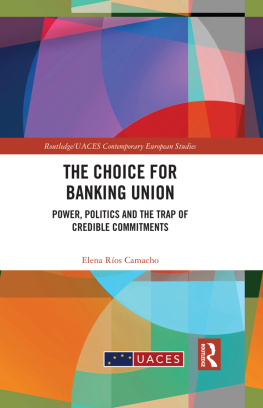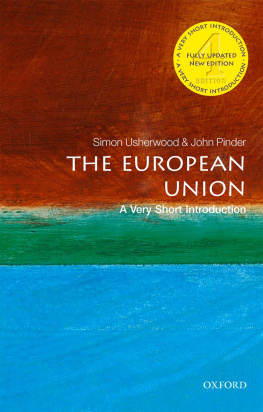The New Politics of Energy Security in the European Union and Beyond
A cogent and highly readable book about the politics of energy security in Europe and beyond. Analyzing oil and particularly natural gas developments in a wide area stretching from the Baltic to the Mediterranean sea, Andrea Prontera convincingly demonstrates that energy security is neither a matter of geopolitics, or of markets, but rather of both.
Thijs Van de Graaf, Assistant Professor of International Politics at the Department of Political Science at Ghent University in Belgium
Combining theoretical reflections and empirical insights from paradigmatic case studies in the area of external energy governance, pipeline politics, Liquefied Natural Gas development and offshore petroleum policy and politics, this ground-breaking study demonstrates that a distinctive and new politics of energy security is definitively emerging in the European Union. Innovative not only in regard to the case studies presented (which include the Caspian region, the Baltic, Mediterranean countries, Central Asia and EU-Russia relations), but also in regard to the analytical framework adopted an International Political Economy approach informed by an historical institutional perspective the book challenges the common view of the depoliticisation of energy security supported by the mainstream market approach and the power politics and zero-sum game view supported by the geopolitical perspective. This book places the study of EU energy politics in the broader, evolving context of global energy markets and explores the complex interactions between EU and national political dynamics and between energy security and environmental concerns at the local level.
Andrea Prontera is Assistant Professor of International Relations and EU Institutions and Policies in the Department of Political Science, Communication and International Relations at the University of Macerata, Italy. His main research interests and publications lie in the areas of international political economy, comparative public policy and energy policy.
First published 2017
by Routledge
2 Park Square, Milton Park, Abingdon, Oxon OX14 4RN
and by Routledge
711 Third Avenue, New York, NY 10017
Routledge is an imprint of the Taylor & Francis Group, an informa business
2017 Andrea Prontera
The right of Andrea Prontera to be identified as author of this work has been asserted by him in accordance with sections 77 and 78 of the Copyright, Designs and Patents Act 1988.
All rights reserved. No part of this book may be reprinted or reproduced or utilised in any form or by any electronic, mechanical, or other means, now known or hereafter invented, including photocopying and recording, or in any information storage or retrieval system, without permission in writing from the publishers.
Trademark notice: Product or corporate names may be trademarks or registered trademarks, and are used only for identification and explanation without intent to infringe.
British Library Cataloguing-in-Publication Data
A catalogue record for this book is available from the British Library
Library of Congress Cataloging-in-Publication Data
Names: Prontera, Andrea, author.
Title: The new politics of energy security in the European Union and
beyond : states, markets, institutions / Andrea Prontera.
Description: Abingdon, Oxon ; New York, NY : Routledge, 2017. | Includes
bibliographical references and index.
Identifiers: LCCN 2016054860 | ISBN 9781472476920 (hardback) |
ISBN 9781315555126 (e-book)
Subjects: LCSH: Energy securityPolitical aspectsEuropean Union
countries. | Energy developmentPolitical aspectsEuropean Union
countries. | Energy policyEuropean Union countries.
Classification: LCC HD9502.E852 P76 2017 | DDC 333.79094dc23
LC record available at https://lccn.loc.gov/2016054860
ISBN: 978-1-472-47692-0 (hbk)
ISBN: 978-1-315-55512-6 (ebk)
Typeset in Times New Roman
by Apex CoVantage, LLC
The idea of this book emerged in 201314 when I first thought to organise the different research I was doing on energy politics and energy security in Europe into one coherent work. Over the next two years, the original idea developed thanks to the help of many individuals and institutions who have generously supported my efforts with time, resources and advice. The colleagues, staff and friends at the Department of Political Science, International Relations and Communications at the University of Macerata have provided the best environment possible for this work. I would like to thank Luca Lanzalaco in particular for drawing my attention to the importance of the states-markets nexus in political science and discussing many of the theoretical arguments presented in the book with me.
This book has also greatly benefitted from the research periods I spent at the Centre for Energy, Petroleum and Mineral Law and Policy (CEPMLP) at the University of Dundee (2015) and the Oxford Institute for Energy Studies (OIES) at the University of Oxford (2016). In both cases, I enjoyed incredible support from colleagues, experts and staff and was able to discuss my work with them and improve it. I am particularly grateful to Peter Cameron of the Centre for Energy, Petroleum and Mineral Law and Policy and Jonathan Stern, Bassam Fattouh, Howard Rogers and all the members of the Natural Gas Research Programme at the Oxford Institute for Energy Studies for hosting me during my project. I would also like to offer special thanks to Jonathan Stern, who dedicated much of his valuable time to read all the drafts of the book and offer thoughtful comments. I would also like to offer special thanks to Katja Yafimava for her generous support and comments on important sections of the work.
Many empirical and theoretical arguments in the book have also been presented and discussed during several conferences at the University of Glasgow (2014), the University of Duesto, Bilbao (2015), and Queen Mary University of London (2016). I would like to thank all the organisers and participants at these events for their comments and suggestions. I would also like to thank the coordinators of the UACES Collaborative Research Network on European Energy Policy for providing an effective and excellent platform for exchanging ideas and research on energy-related issues in the European Union.
Any errors or misjudgements that are still present in this final text, notwithstanding all this support and advice, are my sole responsibility.
1
Introduction
At the very beginning of the 2000s, in a context of rising oil prices and global energy demand, the European Commission raised concern about the increasing energy dependence of the European Union (EU) and sketched out the main pillars for a long-term strategy aimed at reducing the risks of such dependence, especially in the gas sector. Since then, the enhancement of the Internal Energy Market (IEM) and the development of the EUs external energy policy have begun to challenge the long-standing European approach to security of supply, mainly based on a combination of national champions and bilateral foreign energy policy.
What have been the main effects of these reforms on the politics of energy security in the EU and beyond? How have these transformations affected the traditional politics of energy security in the EU member states? How does the continuous, large EU dependence on energy from abroad affect EU external actions and the foreign policy and diplomacy of the EU member states? How can we assess the effectiveness of the EU energy security strategy? What roles do EU member states and European energy companies play in the emerging EU security of supply governance structure? Are national governments losing their importance in the new context of liberalised energy markets? How does the nexus between energy security and environmental protection practically affect the EU strategy aimed at the diversification of energy sources and routes?

